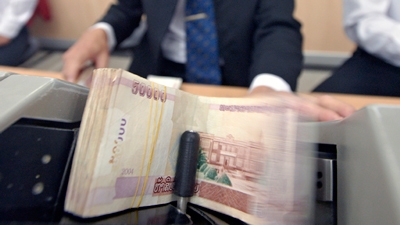Key Findings
Economic outlook
- Growth is projected at 7.2% in 2014, with a moderate slowdown on the 8.1% recorded for 2013. Growth continues to be fueled by the resource sector, continued FDI-financed investment in hydropower, and accommodative macroeconomic policies.
- The resource sector is expected to provide a smaller direct contribution to growth in 2014. This is due to most major projects are under construction and not expected to commence operation this year. It is also due to expected lower gold production, which is likely to offset some of the gains expected from higher copper production.
- In the 2012/13 financial year, the fiscal deficit widened significantly, due to a combination of a large increase in public sector wages and benefits, and a decline in grants and mining revenues. The primary cause of the expanded deficit was due to an almost doubling of the total public expenditure on civil service wages and benefits.
- The 2013/14 budget plan indicates a slightly narrower fiscal deficit, but cuts in benefits will be offset by new recruitment as well as further increases in salaries paid to civil servants for two consecutive years. The government has discussed some revenue administration measures to help address the issue. In addition to revenue measures, there is a need for more prudent medium-term expenditure planning and execution by the government going forward.
- In 2013, foreign exchange reserves continued to fall to their lowest level in a decade, covering only 1.3 months of goods and services imports. This trend was fueled by the widening current account deficit, driven by resource sector investment as well as strong domestic demand and accommodative fiscal and monetary policy. Efforts will be required by the authorities to rebuild reserves so that the country is better able to absorb any adverse shocks in the future.
- Over the course of 2013, the Lao kip weakened slightly against the US dollar and strengthened against the Thai baht. An overall real appreciation of the exchange rate implies a deterioration in the competitiveness of Lao PDR’s tradable exports.
School-based management in Lao PDR
A recent World Bank study, highlighted in the Lao PDR Economic Monitor (January 2014), explains how school-based management can help improve education quality.
- Lao PDR's education system faces challenges in meeting its goals of providing all students with access to education and improving learning outcomes. While the government increased spending on education, it is facing challenges.
- One of the challenges is that the level of ‘non-wage, public recurrent expenditure’--- which pays for school materials, equipment, teacher training, and more--- is still low. As such, families still shoulder most of the spending for these in schools. The lack of education resources result into few learning materials and low quality facilities.
- In 2011, the government instituted a School Block Grant program to help improve education quality. This provides schools with resources (on a per student basis) to be used for non-wage expenditures on the things that matter most. It also gives provinces, districts and schools greater administrative control so they can improve educational administration and schooling quality.
- As this initiative is at its early stage, challenges encountered include the limited local capacity of schools to manage budgetary allocations. The study provides suggestions, such as local capacity building, improving the timeliness of fund delivery, and improving accountability mechanisms.
